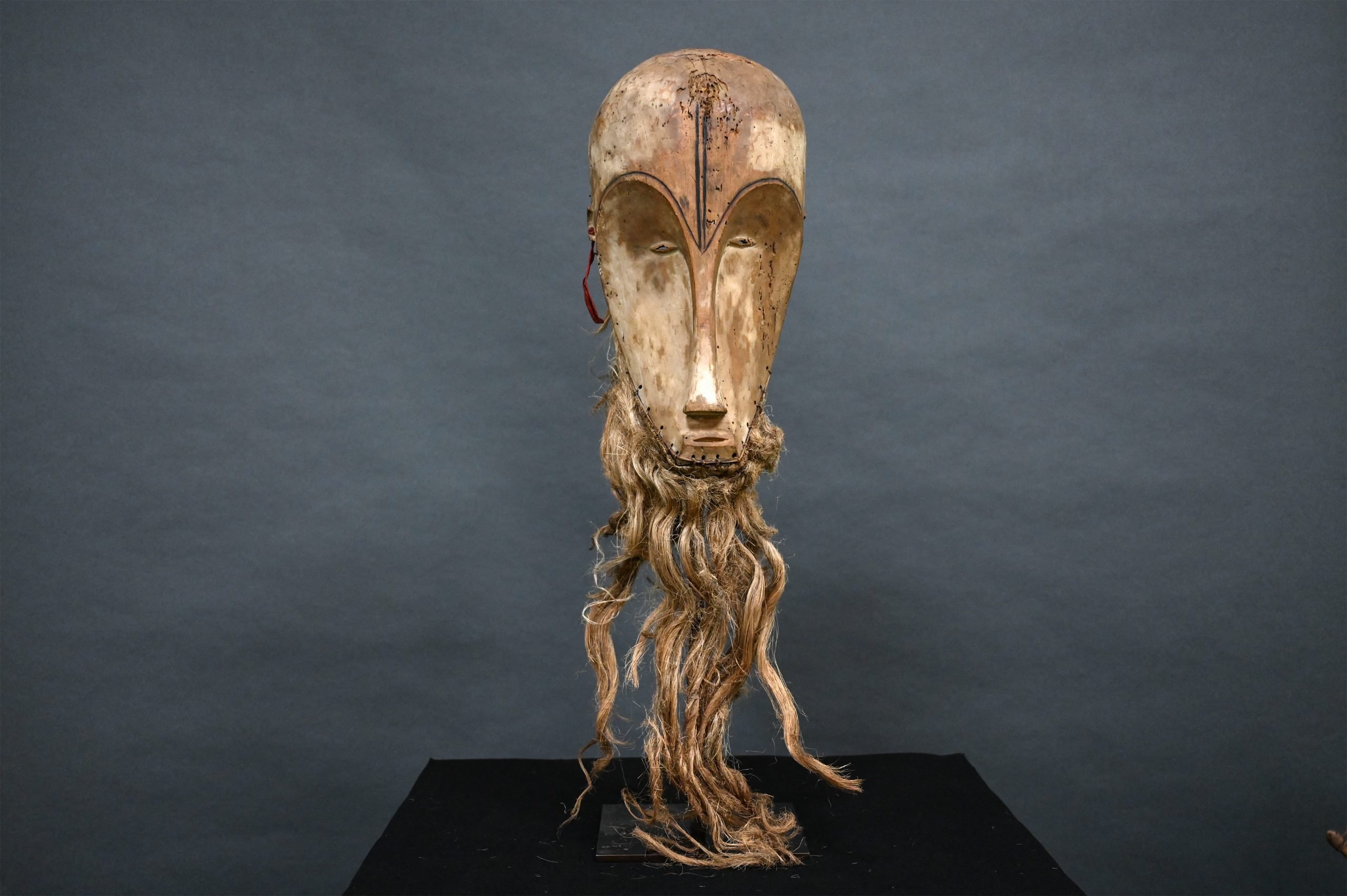
An elderly French couple have just lost their case against a second-hand dealer, after parting with a rare African mask that had been gathering dust in their attic. The dealer paid the €150 ($165) for the precious Ngil mask, which was made by the Fang people of Gabon, before sending it to auction where it fetched €4.2 million ($4.6 million), following estimates of between €300,000 and €400,000.
Artnet News first reported the lawsuit in October, following various legal moves that involved freezing the proceeds of the sale. The dealer has denied knowing the item’s true value, claiming that he undertook considerable research following valuations by three separate auctioneers. Only then was it revealed that this ritual object was used as part of purification ceremonies conducted by a secret Ngil society. It is believed to be one of around 10 surviving examples left in the world.
The couple claim that the dealer misled them regarding the object’s true value and rejected a goodwill offer of €300,000 ($329,300), which he made following the sale. Despite initial assurances that the pair had a strong case, the judge ultimately ruled in the dealer’s favor, stating that the former owners were guilty of “inexcusable negligence and frivolity.” Defense lawyer Patricia Pijot told French media that fault ultimately lay with the pair, who failed to research the object’s true value before selling it as part of their holiday property clear-out. “When you’ve got such an item at home, you should be a bit more curious before giving it up,” she said.
In a separate controversy, the State of Gabon has called for the mask’s repatriation. Gabonese community members attended the Montpellier auction in protest, back in March 2022, stating that it should never have been put up for sale in the first place. The West African nation was colonized by the French from 1885 to 1960, at which time thousands of cultural objects were looted and removed from the country. The auction catalogue was evasive about the mask’s provenance: “Collected around 1917, in unknown circumstances, by the French colonial governor René-Victor Edward Maurice Fournier (1873–1931), probably during a tour in Gabon.” Fournier was the plaintiff’s grandfather.
Solange Bizeau, of the Collectif Gabon Occitanie, attended the protest, and later told the Guardian, “This mask has a soul, it was used to establish justice in our villages. The discussion in court has been about morality, but what about the morality of the spoliation of works of art and our dignity?” Nevertheless, the court threw out a motion by the government of Gabon to cancel the sale and return the mask.
More Trending Stories:
Art Dealers Christina and Emmanuel Di Donna on Their Special Holiday Rituals
Stefanie Heinze Paints Richly Ambiguous Worlds. Collectors Are Obsessed
Inspector Schachter Uncovers Allegations Regarding the Latest Art World Scandal—And It’s a Doozy
Archaeologists Call Foul on the Purported Discovery of a 27,000-Year-Old Pyramid
The Sprawling Legal Dispute Between Yves Bouvier and Dmitry Rybolovlev Is Finally Over